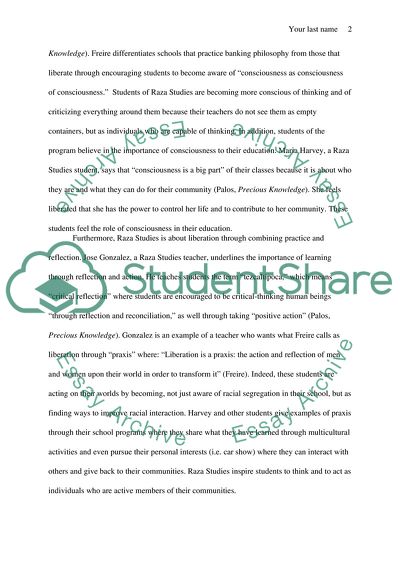Cite this document
(Liberation through Education Article Example | Topics and Well Written Essays - 1500 words, n.d.)
Liberation through Education Article Example | Topics and Well Written Essays - 1500 words. https://studentshare.org/education/1834025-the-mexican-american-studies-program-in-tucson-arizona-was-deemed-inappropriate-by-authorities-and-was-forced-out-of-the-public-school-system
Liberation through Education Article Example | Topics and Well Written Essays - 1500 words. https://studentshare.org/education/1834025-the-mexican-american-studies-program-in-tucson-arizona-was-deemed-inappropriate-by-authorities-and-was-forced-out-of-the-public-school-system
(Liberation through Education Article Example | Topics and Well Written Essays - 1500 Words)
Liberation through Education Article Example | Topics and Well Written Essays - 1500 Words. https://studentshare.org/education/1834025-the-mexican-american-studies-program-in-tucson-arizona-was-deemed-inappropriate-by-authorities-and-was-forced-out-of-the-public-school-system.
Liberation through Education Article Example | Topics and Well Written Essays - 1500 Words. https://studentshare.org/education/1834025-the-mexican-american-studies-program-in-tucson-arizona-was-deemed-inappropriate-by-authorities-and-was-forced-out-of-the-public-school-system.
“Liberation through Education Article Example | Topics and Well Written Essays - 1500 Words”. https://studentshare.org/education/1834025-the-mexican-american-studies-program-in-tucson-arizona-was-deemed-inappropriate-by-authorities-and-was-forced-out-of-the-public-school-system.


